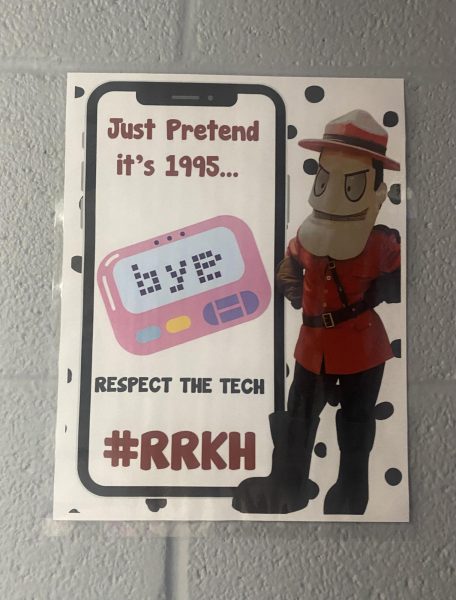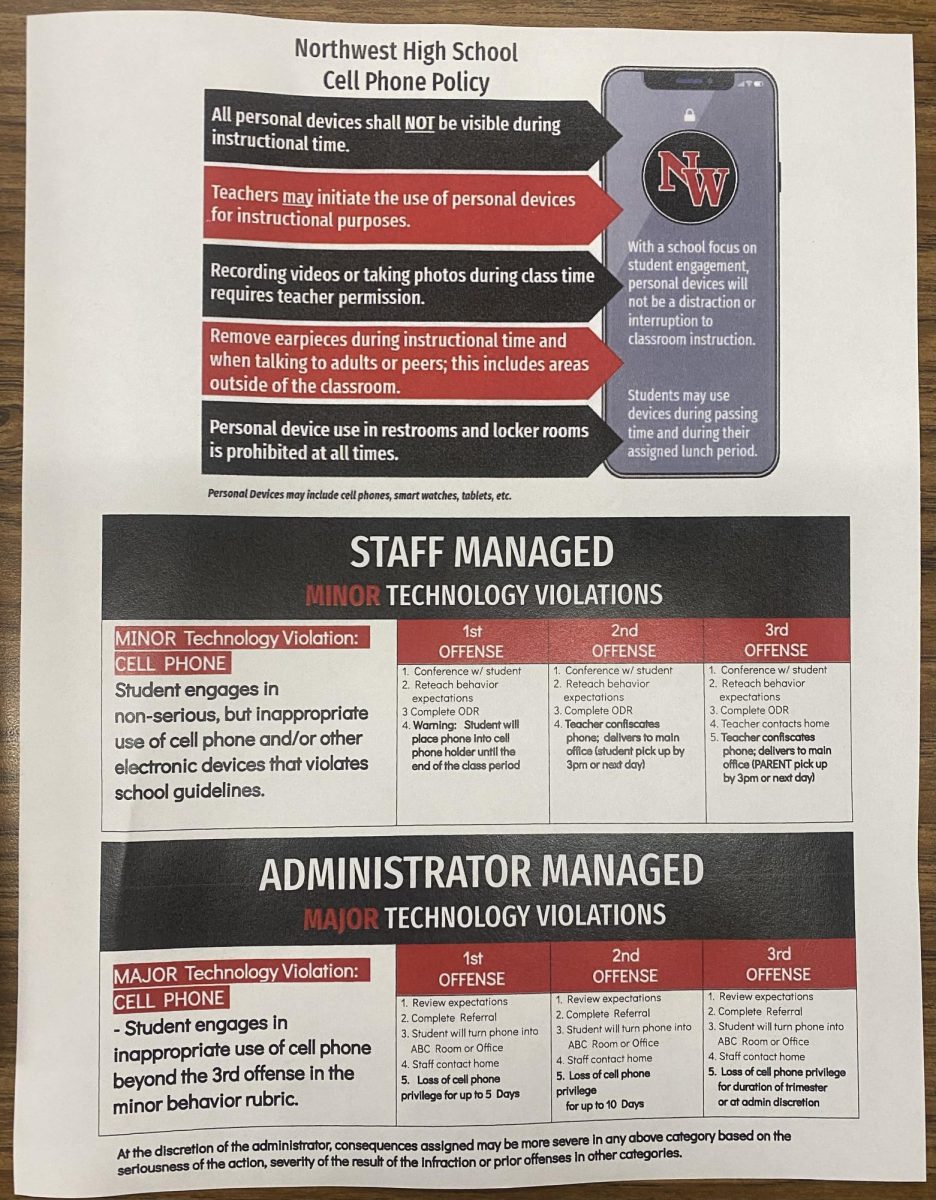As of September 4, 2025, 34 states have enacted policies to limit cellphone use, according to Ballotpedia.org. As Northwest High School (NWHS) does the same, per district expectations, staff, students, and parents have differing views on the issue.
The policy that NWHS enforces explains that phones should be put away during the entire class period, unless instructed to do so by staff. If they are seen out, teachers reserve the right to put them in phone pockets or on their desks for the remainder of the class period. If a student continues after the first warning, harsher consequences, such as having to leave their phones in the office for the day, may be enacted.
Principal Scott Buchler notes that while the high school did not necessarily become stricter this year, the staff became more intentional and assertive with the policy, suggesting that the smartphones cause a distraction during instructional time.
“I always say that phones can either be a tool or a weapon,” said Buchler. “We know there is research out there that

it [cellphone] creates more anxiety.”
To ensure that the policy is enforced fairly and consistently among students, Buchler has requested that teachers create individualized plans that apply the district-wide expectation in each classroom.
Assistant Principal Phil Sczykutowicz discussed that the three key factors to take into account are technology violations, particularly cellphone usage, students’ grades, and teacher feedback on student engagement.
When it was first implemented, there was a surprising increase in technology violations, lower grades, and poorer feedback from teachers, also known as an implementation dip. Buchler and Sczykutowicz observed that, with consistency, trends will begin to emerge throughout the year, and adjustments will be made as needed.
Supporting the policy, Math Teacher Cynithia Page requires all her students to put their devices in their assigned pockets each day of class. Page notes that students lack sufficient self-control to keep their phones away, which ultimately leads to difficulty staying on task.
However, there are instances where students may use their devices. If they have caught up on all their work on the designated catch-up days, then they are allowed to use their phones for the class period. Occasionally, Page also allows students to play music on their phones, but they must keep them in their pockets.
“Phone usage can be an addiction just like any other addiction,” said Page. “A lot of things are not wrong until they’re done in excess.”
Other teachers, like Math Teacher Jill Lefere, only require the pockets during tests. Lefere is cautious of students who may attempt to cheat and has enforced the policy to help lower the chances of students doing so.
While Buchler, Page, and Lefere agree that the policy is playing a positive role in students’ academics, Junior Evangeline (Eva) Bamm feels that it causes problems with communication.
Bamm says that without her phone, she is not able to contact others in case of emergencies. She also notes that using computers to create Minga passes can be frustrating and time-consuming.
“I would much rather have my phone in my pocket, where I know I can rely on it if something happens,” said Bamm.
Similarly, parents also have mixed emotions about the policies. For example, a February 2025 YouGov survey said that 58% of high school parents supported a phone ban that prohibits them from using their phones during the school day. That leaves the other 42% that do not support a ban.
Parental authority, safety concerns, social media pressure, and academic performance all influence their opinions. For example, parents who support the bans argue that social media negatively affects students’ mental health, and being off their phones for the duration of the school day will lessen these effects. Yet, parents who do not support the ban observe that it should be up to parents, rather than the school, to decide what their child should do with their phone.
Nonetheless, phone policies will continue to spark controversy throughout the United States, regardless of personal opinion.


